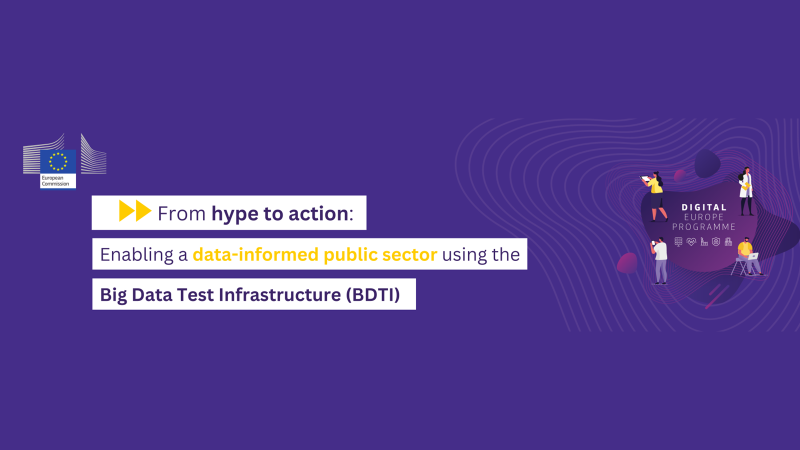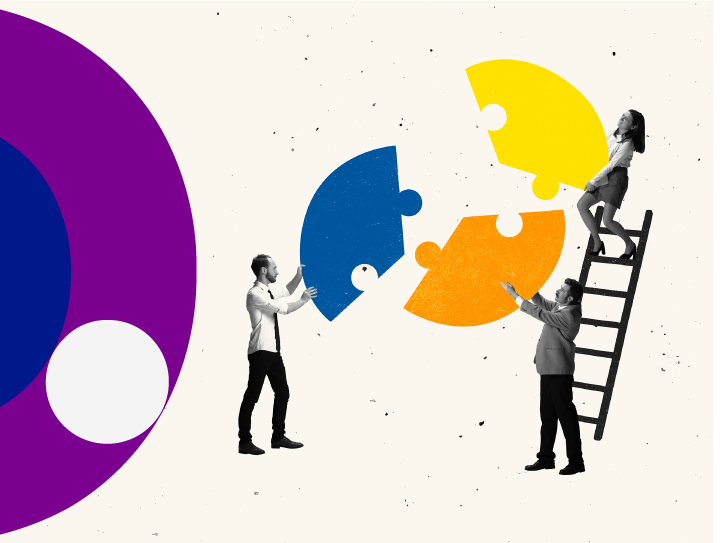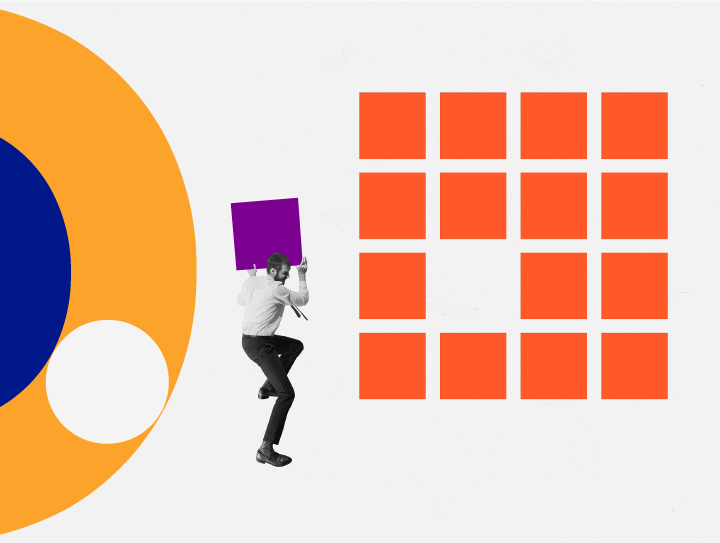592 risultati trovati
Skip results of view Notizie

On Thursday, April 20, the European Commission and the Slovenian Ministry of Digital Transformation hosted a webinar for the country’s civil servants, aiming to promote the use of more and better data in policymaking and public administration. The event specifically highlighted the support available from the European Commission to Member States, including the Big Data Test Infrastructure (BDTI) service. Data is vital to provide better services to citizens and drive innovation. However, the public sector faces challenges related to data skills and technology which hinder their capabilities. The

The fourth course of the restructured data.europa.eu academy , titled ‘ Creating your business with open data ’ explains the ways in which data can strengthen your business. Through webinars, e-learning and reading materials you will learn how to use open data to create a new product or service or develop it and take it to the next level. The course consists of nine lessons, starting with ‘ What is the value of data? ’. This lesson explores how open data creates value for governments, businesses and individuals. Following that, the lesson ‘ How useful is my data? ’ provides information and

Today is World Environment Day , dedicated to raise awareness on plastic pollution. The accumulation of plastic products in the environment causes significant problems for wildlife and their habitats as well as for human populations. Approximately 7 billion out of the 9.2 billion tonnes of plastic produced from 1950 to 1917 ended up as waste in nature. Therefore, systematic change in the way we produce, use and dispose plastic is crucial. Changing the way we reuse, recycle, reorient and diversify plastic is proposed by the UN environment programme in their report ‘ Turning off the Tap: How the
On Friday 12 May, the data.europa academy hosted the webinar ‘Data spaces: Introducing the concept and relevance in today’s world’. This was the first webinar in a series of webinars on Data Spaces, aligning with the European Data Strategy , where a common European data space is defined as a key element to facilitate data pooling and sharing. This first webinar introduced its concept, policy and legal framework. Data spaces are data ecosystems that operate based on shared policies and rules to overcome legal and technical barriers to data sharing and unleash the value of data. Building upon

The restructured data.europa academy offers its third course, ‘ Incorporating open data into your application ’, where you can learn how to use open data to create or enhance applications. Whether you are beginner or advanced, you can discover how to find hidden data on the web, how to use it and achieve open data interoperability across Europe. The course covers seven lessons, starting with an e-learning ‘ Finding hidden data on the web ’, which explains how to locate and obtain hidden data and assess its benefits and value. Following that, the ‘5 Stars of linked open data’ method used to

In the framework of the Data Governance Act (DGA), the European Commission shall establish a European Single Access Point (ESAP), which will be integrated into data.europa.eu. As a searchable electronic European register, the ESAP will collect, partially mirror, and render the data provided by national single information points (NSIPs). NSIPs will assist potential re-users in finding information on what protected data (e.g., personal, or commercially confidential data) can be reused under specific conditions. They are to be established by the EU Member States by 24 September 2023. For the

The second course of the restructured data.europa academy aims to enhance the understanding of how legislation and regulations can impact the publication and reuse of open data. The course ‘Understanding the legal side of open data’ introduces the different types of open data licenses and provides information and tools to select the appropriate one. Furthermore, it presents the current legal challenges related to the use and distribution of open data. The course consists of three lessons. The first lesson, Open data licensing , explains the concept of open data licensing and what it means in
May is EU Diversity month , dedicated to raising awareness about the importance of diversity and inclusion in the workplace and across societies. To acknowledge the efforts of organisations in building equal and inclusive environments, the European Commission organised the second edition of the European Capitals of Inclusion and Diversity Award . This year, the winners span across seven Member States: Belgium, Croatia, Finland, Italy, Poland, Portugal and Spain. Diversity and Inclusion encompass the representation and visibility of different groups in terms of sex, racial or ethnic origin

Today, we celebrate International Day for Biological Diversity , raising awareness for a thriving planet where all creatures can flourish. This year’s theme ‘From Agreement to Action: Build Back Biodiversity’ follows the new Kunming-Montreal Global Biodiversity Framework (GFB) , which emerged from the 15 th Conference of Parties to the UN Convention on Biological Diversity. Biological diversity includes all ecosystems and the interactions among their members. It creates food chains and plays an important role in healthcare, for example through the production of traditional plant-based
On Friday 26 May from 10.00 to 11.30 CET, the data.europa academy will host the third edition of its webinar series ‘Stories of use cases’ on EU political priorities. Making the most of open data is crucial for addressing global challenges and promoting innovation. This edition will focus on open data and its potential to support a new push for European democracy, by presenting initiatives that use open data to protect and strengthen European democracy. It is following the previous webinar in the series covering the EU Green Deal and A European way of life and an economy that works for people
